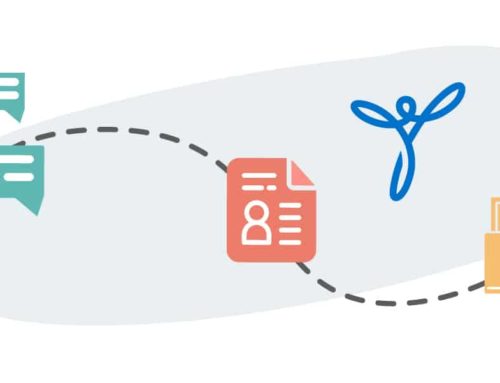Brain Tumors – What patients and caregivers need – An Inspire Insights: Engage Case Study
By Monica St. Claire
Almost 80,000 adults will be diagnosed with brain or spinal cord tumors in the US this year.1 Seven hundred thousand are living with brain tumors in the US today.1 Although extensive media coverage of political figures, Joseph “Beau” Biden and Senator Edward “Ted” Kennedy, as well as Senator John McCain’s July 2017 diagnosis, has placed a spotlight on an extremely aggressive and rare brain cancer, glioblastoma, there are actually over 120 different types of brain or spinal cord tumors.2 According to the American Brain Tumor Association, over two-thirds of brain tumors are not malignant.1
Malignant or non-malignant brain tumors can cause symptoms. In fact, research has identified a heavy burden of symptoms — an average of 10 concurrent symptoms — in patients with brain tumors.3 Detailed neurocognitive testing (which can detect even minor changes) done at diagnosis have found problems in 80% of those diagnosed with brain tumors.4
Surgery is the first line of treatment. Fear of side effects is an added stress for patients and caregivers. One Inspire member asked,
“My _[brain tumor]_ has grown. I’m afraid to have brain surgery. Has anyone had success with surgery or any other alternative methods?”
For people facing a brain or spinal cord tumor diagnosis, Inspire has partnered with the American Brain Tumor Association to create the American Brain Tumor Association Brain Tumor Support Community on Inspire. The community receives over 700,000 pageviews per year and over 85,000 unique visitors each year. The community has over 20,000 members to date. Because of the severity of symptoms and treatments, around 70% of members are caregivers.
This community averages over 1,300 new discussions, replies and journal entries per month. In this community, Inspire is home to around 10,000 postings directly related to the topic of brain tumors.
Patients’ and Caregivers’ Discussions
Patients discuss real and understandable fears about treatment.
“All the research I’ve done on surgery….[there are] not a lot [of surgeries] done with no problems…I will go to hell and back before I have brain surgery…So I’m starting the gamma knife next week and if there is anyone out there with this type of experience please let me know what I’m in for please…”
They receive support and useful feedback.
“I totally understand your hesitation! I completely went thru all the stages of grief. I have …kids … and the stress of possibly not seeing or waking up is a horrifying ordeal.
Then? I met the most amazing doctor who changed everything…In fact he told me he didn’t want or need my business and that he would recommend me to two other docs that he knew could do this very tricky operation that I was looking at; but, if I ever wanted to see again, to not use any of the docs I had visited with thus far.
Stunned, I asked why. He said, [‘]because they don’t have enough skill sets to keep you from either bleeding out, or being blind. If they haven’t sat you down to explain how ridiculously difficult and dangerous your surgery is, then you need to ask yourself why didn’t they.[‘] So I started to choke up and I looked at him and said, [‘]well…I pick you. You might not pick me…but I pick you.[‘]
[Now]…I can see again. I didn’t bleed out….
All I can say is, do your homework on the docs and ask questions. Like, how many people have they killed doing this procedure? How many have they blinded? Ask the tough questions that relate to your tumor. It’s your body and your right to know their batting average. A good doc won’t have a problem telling you the truth.”
Caregivers reach out with questions after surgery.
“My _[family member]_ had surgery 4 months ago to remove a __[brain tumor]__from _[part of brain]_. The dr seem to think he got the complete tumor….The last couple days [family member] had… swelling and pressure in [their] head when [they] lean over. I’m really concerned about this._ [Family member]’s_ been swimming and going deep under the water. My question is, would that cause _[family member]_ to have cranial pressure and swelling? That’s the only thing different _[family member]’s_ done lately.”
A patient member explained to this caregiver what their experience had been.
“The probs your _[family member]_ is having were identical to what I experienced up to at least 6 months post operation. When your skull is open up for surgery, then closed. A lot of air is trapped which takes a long time to dissipate naturally. This alone caused a muzzy head when swimming underwater. The slightest pressure differential is just enough to make your head go wonky.”
Nearly one-third of brain tumors are malignant. According to American Society of Clinical Oncology, the five-year survival rate for men diagnosed with malignant brain tumors is 34% and for women is 36%.5 Caregivers reach out to each other to understand new behaviors or changes they are seeing in their loved ones.
“Today is a hard day for whatever reason. Just lots of crying for me….I just continue to be concerned for my __[family member]_…_[Family member]’s_ been late for work, and seems unsure why… like today; I left for my own appointment and told __[family member]_ to leave in 15 minutes…came back an hour later and _[family member]_ was still home. _[Family member]_ couldn’t answer why they didn’t leave and …I’m worried _[family member]’ll_ lose their job…I just want _[family member]_ to get better…
To help, another caregiver explained that the problem with being late was not unusual.
“As far as _[your family member]_ being late for work, it’s amazing that _[your family member]_ has been able to work with all that _[your family member]_ has gone through. My _[family member]_ stays tired. My _[family member]_ has to take naps in order to function a full day. I am certain _[your family member]’s_ condition is causing [the] tardiness for work, I am sure it is beyond _[your family member]’s_ control.”
One patient wrote of his experience with a malignant brain tumor diagnosis and prognosis this way.
“What struck me immediately when I was diagnosed was the absolute cluelessness of oncologists, their ineffectual treatments and overall unwillingness to accept that you, as their patient, will not live beyond the __[typical prognosis time-frame]_….For me, it seemed that I valued my life more than the oncologists overseeing my case, because after on a short self -review of my case and after a crash course of research into _[brain tumor]_, it soon became clear to me that there were escape routes through the fatalistic opinion surrounding me. With an absolute certainty, I can say that if it were not for my own intervention in my care, and utter refusal to accept what the medical professionals were telling me, I would be dead right now.”
Another caregiver described how they researched surgeons to achieve the best results they could for their family.
My __[spouse]_ was diagnosed in _[date]_ when our kids were [ages]. Without ever learning how, I got a call from a complete stranger who lives three states away. Her _[family member]_ had also been diagnosed with __[brain tumor]__ earlier that year, had one surgery, and after some complications went for a second opinion, and was told they needed a second more-complete surgery immediately. Two surgeries within several months. By the time I spoke with her, her _[family member]_ was doing much better and had started the return to work. The message was if you want the best shot at longevity, get an aggressive surgeon who was willing to risk disability and deficits to get more of the tumor. For us it was the best advice we ever received. After interviewing several surgeons _[at Centers of Excellence]__, we settled on _[Center of Excellence]_ and a very blunt surgeon…who, important to us, operated on brain tumors several times a week which was my other criteria – somebody who does this all the time. After that first aggressive surgery, and several years, my _[family member]_ completely recovered….These are very tough calls, and every person has to decide what they can live with. The threats to my _[family member_] were [deficits in] speech and mobility, and _[family member]_ decided [to accept the] risk…and maintain a meaningful relationship with the_[family]_.
Patients’ and Caregivers’ Needs
Patients and caregivers take different paths from diagnosis and treatment through recovery and beyond based on the brain tumor and its location. As one patient explained, being diagnosed with a brain tumor changes everything.
“The treatment is the easy part. It’s recovery of the mental and emotional part that is brutal. The ‘new normal.’ Because the reality is that regardless of treatment, the diagnosis itself puts you into a ‘new normal’ category.”
For the patient and caregiver, the challenge lies in finding accurate up-to-date information on symptoms, aggressiveness, treatment and potential outcomes on the array of types of brain tumors and their location. Decision-making can be difficult because of the sudden onset of symptoms, like seizures or physical and cognitive functional changes, and the immediate need for treatment.2
Treatment decisions are just the beginning of the extensive toll a brain tumor diagnosis places on patients and their caregivers. Information needs may continuously change if the trajectory of symptoms increase. Adjustments around roles and responsibilities, compensation for disabilities as well as understanding what can be expected from the patient add to the challenge for both the patient and the people around them. Caregivers of people with brain tumors may be overwhelmed by multiple expectations, including performing nursing tasks like changing dressings and administering medications without any training. New tasks may also include dealing with finances and insurance as well as helping the patient with basic functioning, including private toileting activities.2
One caregiver wrote about her experience:
“We were never even given a “prognosis”…Like a time frame or how many years we have, etc…never were told anything like that. Found estimates online on our own. And then again, we don’t ask them for things like that either because it makes everything seem finite if they say it. I just keep praying _[family member]’’ll beat the odds on the numbers I do see. But I also just don’t know how to cope with it and be the support _[family member]_ needs.”
For patients, the information gap of some family caregivers affects them. For example, a member writers,
“I have had a really hard time working with my family. I finished my _[number]_ radiation treatments [timeframe] ago. My [child 1 and child 2]..were there for me for my radiation treatments without any problem. I can talk to [child 2] without a problem. My [child 1]…really come[s] down hard on me if I try to talk about my [brain tumor]. They say. ‘Well just be glad you don’t have cancer. You are fine now with the radiation.’ I get my first follow up MRI on [date]. I still have dizziness, headaches, short term memory issues.”
Another member responded. They had had the same experience but explained what may be happening with family members.
“I don’t think they fully understand what we go thru. Do not let them get to you and work on feeling better. It’s a long road ahead and I know how you feel. I have same issue w certain people and their opinion. Know that they have no clue about the true fight and resilience we need but they mean well. Only people who have brain tumors understand. Don’t feel offended and focus on getting better and surround yourself with loving and positive individuals.”
These member quotes illustrate a need for information that is not being met. Today, we share a case study describing how Inspire Insights: Engage can help uncover the needs of patients and caregivers dealing with brain tumors.
Inspire offers a trusted community to patients and caregivers. Our goal with this blog, this website and our content is to provide the life science industry access to the true, authentic patient voice. In so doing, we support faithful operationalization of patient-centricity. Take a look at our case studies, eBooks and news outlet coverage.
References:
1 https://www.abta.org/about-brain-tumors/brain-tumor-faqs/
2 Shubart, J., Kinzie, M. and Farace, E. (2008).Caring for the brain tumor patient: Family caregiver burden and unmet needs, Neuro-Oncology, 10(1), 61–72. Retrieved from https://doi.org/10.1215/15228517-2007-040
3 Armstrong, T., et.al. (2016). The symptom burden of primary brain tumors: evidence for a core set of tumor- and treatment-related symptom. Neuro-Oncology, 18(2). 252–260. Retrieved from https://doi.org/10.1093/neuonc/nov166
4 Day, J., et al. (2016).Neurocognitive Deficits and Neurocognitive Rehabilitation in Adult Brain Tumors. Current Treatment Options Neurology 18(22). Retrieved from https://doi.org/10.1007/s11940-016-0406-
5 Brain Tumor Statistics. Retrieved from https://www.cancer.net/cancer-types/brain-tumor/statistics





